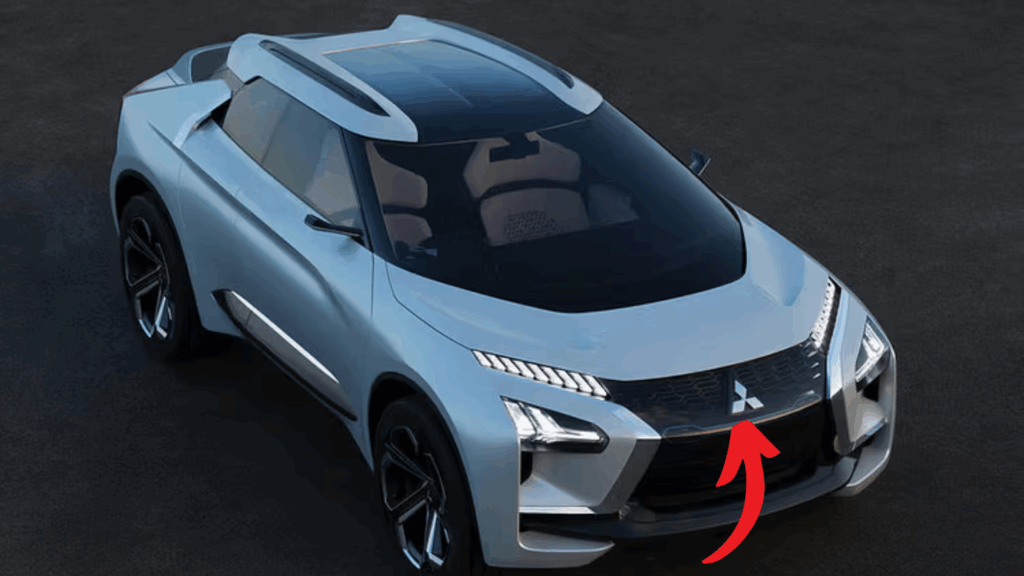Look, I’ve been covering the auto industry for nearly 15 years now, and you develop a sense for when something big is brewing. The whispers started at last year’s Seoul Auto Show — just quiet murmurs backstage that Genesis was cooking up something extraordinary. Something far beyond their typical luxury sedans and crossovers.
Those whispers have grown louder. Way louder. And now I can confirm through three separate industry sources that Genesis is indeed preparing to challenge the mighty Land Rover Defender with their own take on the premium off-roader concept.
Genesis Going Rogue
Let’s be real — nobody saw this coming. Genesis has built its reputation on gorgeous, tech-laden vehicles that prioritize on-road sophistication. Their G80 sedan makes a Mercedes E-Class sweat, but mud-plugging hasn’t exactly been their thing.
Till now, that is.
My contact at Genesis (who spoke on condition of anonymity) told me over beers last month that the project has been a “back-burner obsession” of certain executives for years. “We’ve been watching the explosion in luxury off-roaders since the pandemic,” he said, “and frankly, we think there’s room for something fresh that doesn’t rely on 1940s nostalgia.”
Ouch. Shots fired at Land Rover.
Style Meets Substance
I managed to glimpse some early clay models during a hush-hush studio visit in Namyang last fall. What struck me wasn’t just how different this vehicle looks from other Genesis products, though it does, but how cohesive the design remains despite its radically different purpose.
SangYup Lee, Genesis’ design chief, has fought hard to maintain the brand’s DNA while creating something that could tackle the Rubicon Trail. The clay model I saw featured enormous wheels pushed to the absolute corners, with barely-there overhangs that would make a Wrangler jealous.
One designer who’d had perhaps one soju too many confided, “We’re sick of creating beautiful cars just to have them compared to Germans. This one’s gonna make people forget about Defender and G-Wagen.” Bold claim? Absolutely. But there was a fire in his eyes that I rarely see in this industry.
The characteristic Genesis “two-line” lighting signature remains, though reimagined as almost weapon-like in its precision. It’s surprising how menacing those elegant light strips become when placed on an aggressive off-road face. And yes, they’ve kept the crest grille, though it’s now an absolute mountain of a thing, standing proud and upright like a shield.
Also Read: Shanghai Motor Show 2025, Favorite Debuts and Concepts
Hardcore Hardware
Genesis isn’t just slapping knobby tires on a GV80 and calling it a day. My sources confirm they’ve developed an entirely new platform specifically for this vehicle, with serious input from off-road specialists poached from competitors.
“We benchmarked everything,” my source explained between bites of bulgogi, “Bronco, Defender, G-Class, 4Runner, Grenadier… tore ’em all down and rebuilt them ourselves to understand what works and what doesn’t.”
The resulting chassis uses what they’re calling a “composite ladder frame” — not quite body-on-frame, not quite unibody, but something cleverly in between that delivers rigidity without the weight penalty. Would I bet my paycheck that this tech came from Hyundai’s commercial vehicle division? Yeah, I probably would.
Powertrain Possibilities
Here’s where things get interesting. Unlike Land Rover, which has committed to electrifying the Defender (eventually), Genesis appears to be hedging their bets with multiple powertrain options right out of the gate. Smart move, especially given the different global markets they’re targeting.
I’ve pieced together this powertrain lineup from various sources. Note that final specs might shift before production:
Engine/Motor Performance Drivetrain Features Fun Fact Price Premium 3.5L Twin-Snail V6 405-430hp (they’re still tuning) Triple-lock diffs, 2-speed transfer Shares basic architecture with Kia’s EV9 GT Base model (+$0) 3.0L Straight-6 Diesel 345hp with mountain-moving torque Same as above + crawl control Developed with truck duty in mind – might show up in a Genesis pickup +$3,500 Dual E-Motor AWD 580hp / 740 lb-ft Individual wheel control, torque vectoring Uses an 800V architecture for stupid-fast charging +$12,000 Hybridized V6 510hp combined Electrified front axle, mechanical rear E-motor handles low-speed crawling without gas engine +$8,000
A Genesis engineer (who’d kill me if I named them) let slip that the hybrid version is “ungodly quick for something this size” during testing at their California proving grounds. They’re targeting 0-60 times that would embarrass some sports cars, because, well, why not?
Luxury Goes Muddin’
The interior is where Genesis has always shone, and from what I’ve heard, they’re not compromising despite the vehicle’s rugged mission. But they ARE rethinking what luxury means in this context.
“Leather that looks better as it gets scuffed up. Screens you can use with muddy gloves. Climate controls you can operate while wearing ski mittens. That’s real luxury in an off-roader,” explained my design contact.
I’m told the center console houses physical controls for all critical off-road systems — no digging through touchscreen menus when you’re halfway up a mountain. Hallelujah! Someone’s finally listening to actual off-road enthusiasts.
The cabin reportedly features what they’re internally calling “expedition trim” — materials that develop a patina with use rather than simply wearing out. Think old-school photographers’ bags or well-loved baseball gloves. If they pull this off, it’ll be a refreshing change from the usual piano black plastic that looks terrible after three fingerprints.
Tech That Makes Sense
Genesis isn’t skimping on technology, but they’re implementing it differently here. According to my sources, they’ve developed a holistic off-road assistance system rather than the usual collection of separate features.
A single rotary controller manages everything from suspension height to drive modes to differential locks. The system supposedly monitors dozens of parameters in real-time — wheel slip, pitch, roll, surface texture through camera analysis — and can suggest optimal settings for the conditions.
One engineer described it as “like having a professional off-road instructor riding shotgun.” The system can even provide progressive training, introducing more advanced techniques as it learns your skill level.
But here’s the kicker — everything can be manually overridden. They’ve recognized that serious off-roaders want technology as a safety net, not a nanny.
Market Disruption
Let’s talk numbers. Genesis is reportedly targeting a starting price around $77,500, with loaded versions pushing $115,000. That’s serious money but significantly undercuts similarly equipped European competitors.
“We don’t need to charge extra for capability that should come standard,” my executive source stated flatly. “Land Rover charges you for off-road features in packages that should be built in from the start.”
And therein lies Genesis’ potential advantage. While Land Rover has spent decades building its off-road reputation, it’s also spent decades charging premium prices justified largely by that heritage. Genesis has no such legacy to leverage, so they’re focusing on delivering genuine capability at a more reasonable price point.
Will it work? I’ve seen enough “Defender killers” come and go to be skeptical. But I’ve also watched Genesis systematically exceed expectations with every vehicle they’ve launched.
Timeline and Target Markets
My sources give slightly different timelines, but the consensus points to a concept unveiling at next year’s New York Auto Show, with production vehicles arriving in late 2025 or early 2026.
North America is a primary target — Americans can’t get enough luxury SUVs with actual capability. But Genesis is also eyeing the Middle East (where off-roading is practically a religion), Australia (where vast distances and rough conditions demand durability), and yes, even the UK (talk about storming the castle).
Production will initially be limited to roughly 20,000 units globally, creating an artificial scarcity that should help residual values, always a concern with new premium models.
Industry Shakeup
So what does this mean for the established players? In the short term, probably not much. Land Rover has weathered numerous challenges to its throne, and its brand equity remains enormous.
But this isn’t some startup with big dreams and small resources. This is Genesis, backed by the industrial might of Hyundai Motor Group, a company that’s demonstrated it can do virtually anything it sets its mind to.
“We don’t need to sell a million of these to consider it successful,” my executive contact explained. “We just need to establish that Genesis can play in this space — and play to win.”
And that’s the real story here. Genesis isn’t just launching an off-roader; they’re making a statement about the brand’s future ambitions. They’re saying, quite clearly, that no segment is off-limits, no competitor too established to challenge.
Having watched Genesis evolve from a gleam in Hyundai’s eye to a legitimate luxury contender, I wouldn’t bet against them. Their vehicles have consistently packed more value, technology, and design flair than competitors at similar price points.
But off-roading is different. It’s tribal. Land Rover owners don’t just buy vehicles; they join a cult with its traditions, gathering spots, and secret handshakes (okay, I made that last one up).
Can Genesis create not just a vehicle but a community? That might be their biggest challenge.
Then again, they’ve done the impossible before. Five years ago, who would have believed a Korean luxury brand could steal sales from BMW and Mercedes? Yet here we are.
What’s most exciting to me isn’t just this specific vehicle but what it represents: the continued evolution of the global automotive hierarchy. Old assumptions about which brands can play in which segments keep falling by the wayside.
And that’s good for all of us who love cars.
FAQs
When exactly will Genesis reveal this off-roader?
My sources point to a concept revealed at the NY Auto Show 2025, with production models hitting showrooms roughly 6-8 months later.
Will it be as capable as a Defender?
From what I’ve heard. Genesis has reportedly been testing prototypes against the Defender and G-Class at various proving grounds.
How much will it cost?
Expect starting prices around $77,500, with fully-loaded models pushing $115K.
Are they creating a sub-brand for this?
Nope. It’ll be fully integrated into the Genesis lineup, though it may get a distinctive badge treatment to mark its special status.











